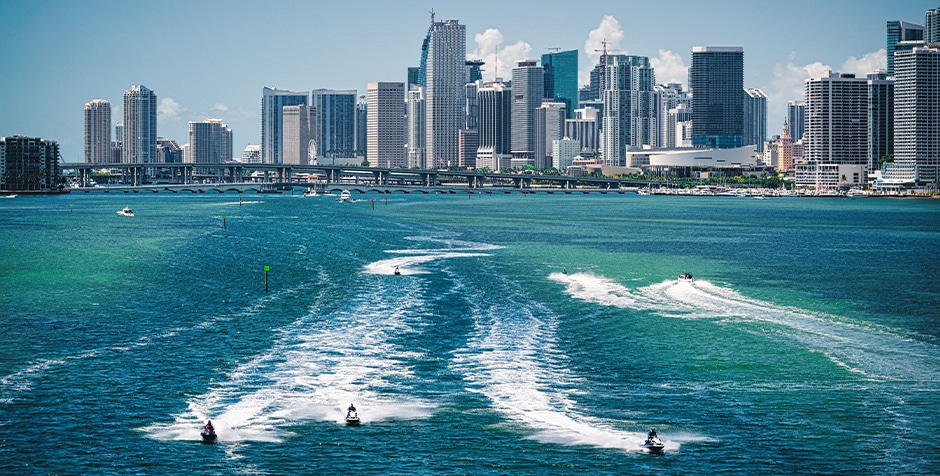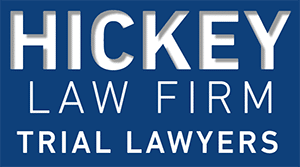
Florida Drowning Accident Lawyer
Legal help after a drowning accident in Florida
If you or a loved one has been injured or if someone in your family has drowned as a result of the negligent design or maintenance of a man-made lake or canal, call lawyers who specialize in this area. At Hickey Law, we specialize in maritime cases. Call us. We care.
WAS A LAWYER FOR THE CRUISE LINES. NOW A LAWYER FOR YOU ®
Free Consultation
Fee is Free - You Don't Pay Unless We Win
Essential facts about drowning risks in Florida
- Florida is home to thousands of bodies of water
- Who is responsible for making water less dangerous?
- Don’t all bodies of water pose similar risks of drowning?
- What about man-made lakes and retention ponds?
- Who is liable in a drowning accident?
- Understanding drowning
- What are the common causes of Florida drowning accidents?
- What steps should I take after a Florida drowning accident?
- How can I prevent drowning accidents?
- Why choose Hickey Law Firm for my drowning accident case?
- Do you have a drowning accident lawyer near me?
Florida is home to thousands of bodies of water
According to the University of Florida, there are thousands of bodies of water – both natural and man-made – throughout the state. In addition to being surrounded by the ocean and home to extensive wetlands, Florida has:
- Close to 8,000 lakes
- Around 1,700 rivers, streams, springs, and spring runs
- Thousands of miles of man-made canals
- Additional ponds and reservoirs
All of these bodies of water can potentially lead to drowning accidents – which is part of the reason that Florida has one of the highest rates of drownings in the country, with 54% more of these tragic accidents than the national average. However, some of these bodies of water create greater risks than others.
Who is responsible for making water less dangerous?
Developers and contractors work with architectural and engineering firms to design and construct man-made bodies of water, including canals, lakes, and stormwater retention ponds. They are responsible for meeting certain design specifications.
These bodies of water also require maintenance. Landowners, whether private persons, commercial organizations, or homeowner’s associations, are responsible for maintaining the property, including bodies of water. They may also hire third-party maintenance and operating companies to perform this work.
Don’t all bodies of water pose similar risks of drowning?
While drowning accidents can happen in any body of water, some are more hazardous than others. For instance, building codes and water management district manuals create slope requirements and other specifications related to design, construction, maintenance, and water flow. Management districts created by the state publish permit information manuals that detail what permits and regulations, both state and Federal, apply.
Some of the requirements include:
- Slopes that aren’t too steep: Steep slopes can make it difficult for people who fall into the water and are panicking to get out of the water safely, increasing the risk of drowning.
- Fences: In some instances, the best way to protect against accidents in and around the water is to surround them with secure fences.
- Post signs: Signs can help warn people that the body of water is nearby and that it’s not safe for swimming.
- Clearing vegetation: Cutting back trees, bushes, grass and other plant life can help people see the water’s edges and avoid falling in.
- Providing life-saving equipment: Placing life rings close to the edge of the water can help rescue efforts if someone does fall in.
If those responsible for managing the property don’t take these steps, they can place others in danger, making them potentially liable for drowning accidents that occur as a result.
What about man-made lakes and retention ponds?
Increasingly common in Florida, man-made lakes and retention ponds often serve as aesthetic additions to residential neighborhoods or as components of stormwater management systems. However, these bodies of water can be deceptively dangerous. Without proper barriers or warning signs, they can become hazards, especially for children.
Retention ponds are particularly concerning because they’re often mistaken for safe, shallow areas. Their steep slopes and murky waters make rescue efforts challenging. As communities continue to develop in Miami and throughout the state, the prevalence of these ponds will only increase. Parents and caregivers must remain vigilant and advocate for enhanced safety measures in their neighborhoods.
Who is liable in a drowning accident?
Determining liability in a Florida drowning accident can be tricky. At Hickey Law Firm, we investigate the circumstances of the incident to identify responsible parties. Common liable parties can include:
- Private pool owners and businesses must stick to strict safety standards, like installing barriers and maintaining equipment.
- Homeowners associations (HOAs) and property managers may be held liable if retention ponds or community pools lack the appropriate safety measures.
- Pool equipment manufacturers can be held accountable for defective products contributing to accidents.
Understanding drowning
StopDrowningNow reports that 10 people drown every day in the United States, with 3,400 people drowning each year. Drowning is also the number-one cause of death for children aged one through four.
The CDC notes:
- Drowning is the process of experiencing respiratory impairment from submersion or immersion in liquid. Drowning happens when a person's nose and mouth are underwater for too long, making it impossible to breathe. Drowning is not always fatal.
- Fatal drowning happens when the drowning results in death.
- Nonfatal drowning happens when a person survives a drowning incident. Nonfatal drowning has a range of outcomes or results, from no injuries to very serious injuries such as brain damage or permanent disability.
THE ADVICE YOU NEED. THE REPRESENTATION YOU WANT.
THE COMPENSATION YOU DESERVE ®
What are the common causes of drowning accidents in Florida?
Waterways, pools, and retention ponds in Miami and throughout Florida pose a significant risk, especially to children. Our state’s warm climate means that swimming is a year-round activity, and it also means pools and other water features are almost always accessible. These activities can turn dangerous without proper precautions.
Common causes of drowning accidents include:
- A lack of supervision. Children are particularly vulnerable when left unattended near water.
- Inadequate safety measures. This includes missing barriers, steep slopes, and inadequate warning signs around pools and ponds.
- Defective equipment. Malfunctioning drains, pumps, or other pool components could increase risks.
- Rip currents and strong tides. The ocean’s natural forces can quickly overwhelm even the strongest swimmer, but currents in other bodies of water can also create serious dangers.
- Consuming alcohol is another significant factor, especially in adult drowning incidents.
WHEN THE STAKES ARE HIGH, PEOPLE CHOOSE HICKEY LAW FIRM. ™
What steps should I take after a Florida drowning accident?
If you or a loved one has been involved in a drowning accident, you must act quickly to protect your rights.
- Even if the victim survives, complications like secondary drowning or brain injury may happen later.
- Take photos of the area, including any safety features (or lack thereof).
- Gather witness statements – eyewitness accounts can be important to establish exactly what happened.
- Consult the Miami, Florida, drowning accident lawyers at Hickey Law Firm. We can help you work through the legal process and seek compensation for your damages and losses.
How can I prevent drowning accidents?
While legal action is available for you to seek justice, the ultimate goal is prevention. A few simple measures can save countless lives:
- Install fences and self-latching gates around pools.
- Supervise children at all times near the water.
- Enforce swimming rules and avoid alcohol near the water.
- Educate children about water safety, including the dangers of retention ponds and strong ocean currents.
Why choose Hickey Law Firm for my drowning accident case?
When maritime law applies, call the maritime law specialists.
Best Law Firms®, Admiralty & Maritime (Top Tier)
JOHN H. (JACK) HICKEY
- Best Lawyers in America®, Admiralty and Maritime (Top Tier)
- Board Certified by The Florida Bar in Admiralty and Maritime Law
- Past Chair of the Admiralty Section of the American Association for Justice (AAJ)
- Past Chair of the Admiralty Law Committee of The Florida Bar
- Author of over 30 maritime law papers presented to attorneys at legal conferences.
- A former defense lawyer for cruise lines, marine insurance companies, and P&l Clubs
- Miami-Dade Bar Circle of Excellence Award for Transportation / Maritime Law, 2024
- Legal Luminaries Award in Maritime Law, 2024
Do you have a Florida drowning accident lawyer near me?
Hickey Law Firm is located at 12150 SW 128th Ct, Suite 225, in Miami, right off the Ronald Reagan Turnpike, close to the Miami Executive Airport. We serve the seriously injured in Miami, throughout Florida, and nationwide. If you are too injured to travel, we can come to you or schedule a phone or video conference instead.
Let our Florida drowning accident lawyers help with your case
If you or someone you love has been affected by a drowning accident, don’t wait to seek legal help. At Hickey Law Firm, we are dedicated to fighting for justice and ensuring your family’s rights are protected. Contact us today for a free consultation to discuss your case. Let us help you secure the compensation you deserve and work toward preventing similar tragedies in the future. To schedule a consultation, call our offices or fill out our contact form today. We can talk about your case and answer all of your questions. Initial consultations are free, and every case is taken on a contingency basis.
Related Articles
- Drownings in Man-Made Lakes in Florida
- Two-Year-Old Child Drowns in Swimming Pool of Pompano Beach Apartment Complex
- Two Year Old Drowns in Bradenton Canal
- Teen Woman In Critical Condition After Nearly Drowning Off South Beach
- Three Dead After Drowning In Hollywood Pool
- Kayaker Found Drowned in Pembroke Pines Lake
- 10-Year-Old Boy Drowns Aboard Cruise Ship in Asia
- Man Drowns In Cruise Ship Swimming Pool
- South Florida Toddler Recovering after Nearly Drowning in Local Swimming Pool

